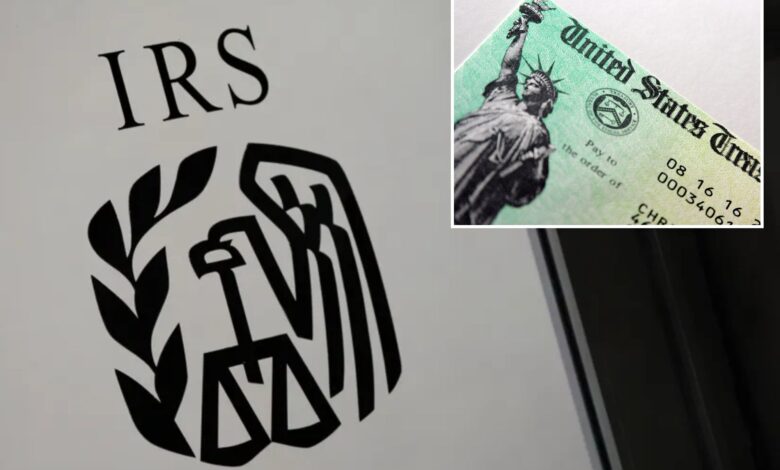Millions of dollars in IRS refund checks sent through mail are being stolen

The check’s not in the mail.
Tax filers who opted to get their IRS refunds sent to their homes said their checks never arrived and were allegedly stolen as part of a massive fraud costing millions of dollars, according to a report.
More than 200 taxpayers who were expecting refund checks ranging from a few hundred dollars to as much as $500,000 have complained to Rep. Nicole Malliotakis (R-NY) that they were victims of theft, the Wall Street Journal reported.
Malliotakis, who represents Staten Island, said the 218 cases that her office has fielded include checks totaling $3.8 million.
One of her constituents had to reissue their request to the IRS four times before receiving a refund check.
“People are getting these checks reissued and the reissued checks are stolen,” Malliotakis told the Journal.
Bennett Grimm, a spine surgeon based in Atlanta, told the Journal that he was notified by the IRS in February that he should expect to receive a refund check from his 2021 amended tax return in two to three weeks’ time.
Grimm said he was expecting a check for $96,000, which the IRS owed him after he sold his medical practice.
But by May, the check hadn’t arrived.
When his account requested a new check, it was stolen and deposited fraudulently, according to the Journal.
Grimm said he is now awaiting his third refund check.
More than 90% of taxpayers choose to get their refunds through direct deposit, which requires giving the IRS bank account information.
But an estimated 10 million filers opt to receive paper checks — making them a target for theft.
Those who receive paper checks can’t switch to direct deposit for that tax year in case of lost or stolen funds.
“We strongly urge direct deposit,” IRS Commissioner Danny Werfel told the Journal.
“It’s the fastest and safest way for us to get taxpayers their refunds.”
Tax filers who had their refund checks lost or stolen are encouraged to fill out an IRS taxpayer statement form and mail or fax it to the IRS office where the return was filed.
Once the Treasury Department’s Bureau of Fiscal Service determines that the claim is legitimate, it will send a new check.
The process can take up to four months, though in some cases it can take less than 30 days.
Last year, the Financial Crimes Enforcement Network issued an alert on a nationwide rise in theft-related check fraud.
In February, two New York residents were sent to federal prison for stealing a $2.9 million IRS refund check that was bound for a Houston couple.
In August, a Los Angeles man was sentenced to more than seven years in prison for using Instagram to solicit bank account holders to deposit stolen checks worth at least $2.7 million.
The IRS said it is modernizing its core technology to include more functions that will enable taxpayers to log into their accounts online.
“As we modernize, we have to do it thoughtfully with a lot of due diligence,” Werfel told the Journal.




